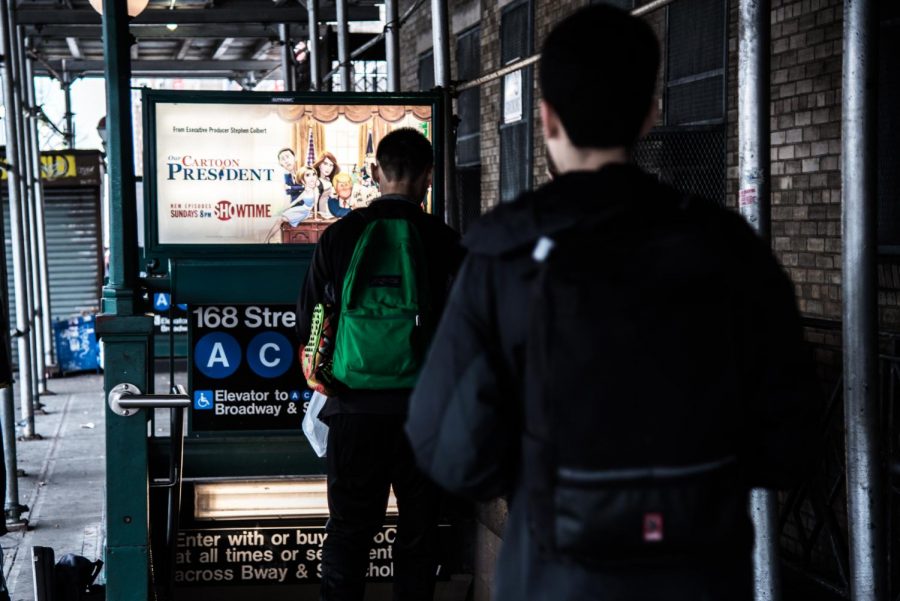Cuomo Proposes Tax for Properties Near Subway
The entrance to the 168th Street Subway Station.
February 12, 2018
New York Gov. Andrew Cuomo recently proposed that owners of property close to the subway should face a tax increase to fund Metropolitan Transportation Authority improvement projects. The proposal is the latest effort to create revenue for the overburdened, underfunded transportation system. But the potential impact on renters — among them NYU students — is unclear.
In January, Cuomo presented his executive budget for 2019, which suggests that the city of New York shoulder a significant portion of the cost for much-needed repairs of the MTA. The proposed property tax would leverage the increase in property value that owners experience as the subway system around them improves.
As a tax-exempt organization, NYU would not be directly affected by the proposed property tax but the impact on students, especially those living in off-campus housing, could be significant.
“This should have been done long ago,” said John Falcocchi, professor of transportation planning and engineering at the Tandon School of Engineering.
In a study he completed last fall with fellow Tandon professor Constantine Kontokosta, Falcocchio suggested property owners near existing subways should help fund the MTA because they benefit from its service.
As for the proposed legislation, the remaining question is how property owners would afford the increase and if they would increase their rents because of the tax.
“I think it’s a great idea,” said Jessica Saab, a CAS senior who lives off campus in Brooklyn. “The only negative is that higher property tax will pass on to residents.”
Saab thinks that increasing rents would likely further the city’s gentrification and force students to move further away from campus.
“[The tax] would definitely push the rents up and push students further and further out,” she said.
Saab predicted that students might consider moving to areas of Brooklyn where the rent might be more affordable.
“It’s a tricky balance to keep it equitable,” Saab said. “If the city could plan it so it wouldn’t affect lower income people who are in the midst of struggling to stay in the city, that would be great.”
Hassaan Qazi, a Tandon freshman, said the property tax proposal is long overdue.
“It is a good thing that the governor is moving in this direction,” he said. “I say this while I’m completely aware of the fact that this probably means I have to pay a higher rent when I move off campus. But I believe the benefits outweigh the costs.”
Qazi said that one part of the proposal should be a stricter form of rent control to help renters who already struggle to afford New York City.
Rent stabilized apartments near campus would be one way for students to catch a financial break.
“As a student, I would want to live close to a subway,” said CAS senior Mariana Castro who lives off-campus in StuyTown. “Increasing the rent — that’s already absurd — is something that would not be sustainable. But StuyTown wouldn’t be as affected as other buildings that are not rent-controlled.”
CAS senior Bryan Kachakji currently lives on campus but wants to find an apartment in New York City after graduation. A potential increase in cost of living would change his outlook on staying in the city.
“Tuition is already so much — rent is so much,” he said. “People might start to think, ‘Should I just move home when the prices become too much?’ Everyone has their point at which they ask if New York is worth it anymore.”
A version of this article appeared in the Monday, Feb. 12 print edition. Email Claire Tighe at [email protected].


























































































































































Matthew Barnes • Feb 12, 2018 at 1:48 pm
Let’s see. We need more housing. More housing hear transit is good.
So the idea is to TAX housing near transit.
Geez. Could this be ANY more clueless?
Get rid of rent stabilization first.